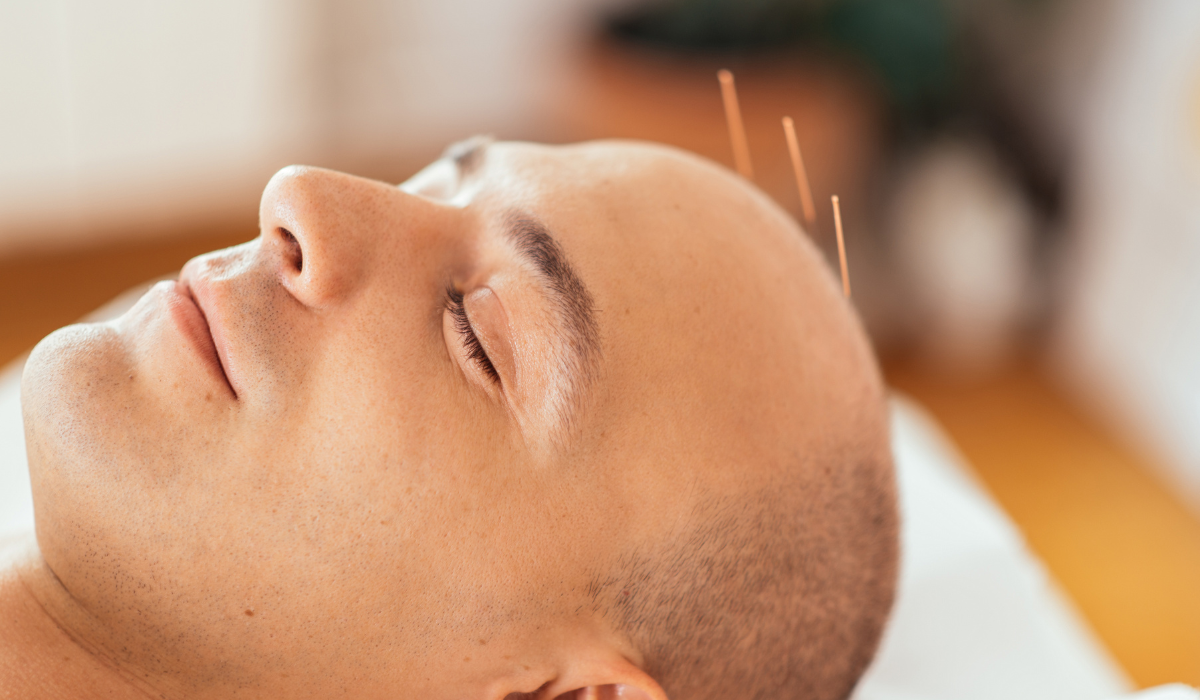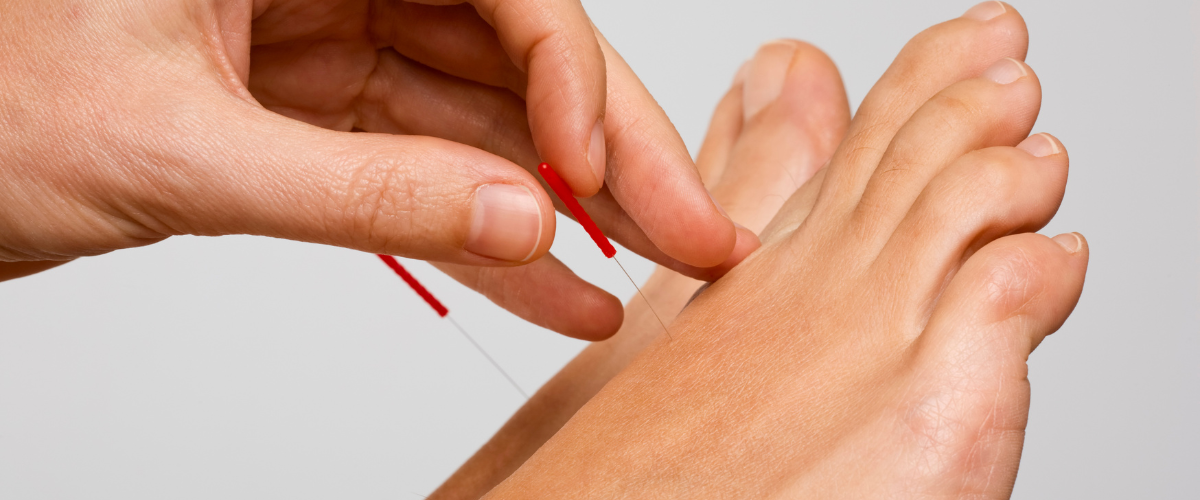Are you tired of feeling sick and uncomfortable after every meal? Look no further than acupuncture to alleviate those post-meal ailments. Acupuncture, an ancient Chinese healing practice, involves the insertion of thin needles into specific points on the body to stimulate energy flow. This alternative therapy has gained popularity in recent years for its ability to address a wide range of health issues, including digestive problems. By targeting the root cause of your discomfort, acupuncture can help regulate your digestion, reduce inflammation, and restore balance to your body, leaving you feeling healthier and more satisfied after each meal.

Why do I sometimes feel sick after eating certain foods?
Feeling sick after eating certain foods can occur due to various reasons. One possible cause is food intolerance or sensitivity, where your body has difficulty digesting or processing specific substances in the food. This can lead to symptoms like nausea, bloating, diarrhea, or stomach pain. Another possibility is an allergic reaction to certain ingredients in the food, triggering an immune response that can manifest as symptoms such as nausea, vomiting, and even difficulty breathing. Food poisoning caused by consuming contaminated or spoiled food can also result in feeling sick after eating. Additionally, certain medical conditions like gastroesophageal reflux disease (GERD) or irritable bowel syndrome (IBS) may cause discomfort and nausea after eating certain foods. It is important to identify the particular triggers and consult a healthcare professional for proper diagnosis and management.

Is feeling sick after eating a sign of a food intolerance or allergy?
Can anxiety or stress cause nausea and sickness after eating?
Yes, anxiety or stress can cause nausea and sickness after eating. When a person is stressed or anxious, their body’s natural response is to activate the “fight or flight” response, which diverts blood flow away from the digestive system. This can slow down digestion and lead to symptoms like nausea, stomach discomfort, and indigestion. Additionally, stress and anxiety can also affect the production of stomach acid and enzymes, potentially leading to further digestive issues.
Are there any medical conditions that can cause feeling sick after eating?
Yes, there are several medical conditions that can cause feeling sick after eating. One possible cause is gastroesophageal reflux disease (GERD), a condition where stomach acid flows back into the esophagus, leading to heartburn and nausea. Another condition is gastroparesis, which occurs when the muscles in the stomach don’t work properly, causing delayed emptying and resulting in feelings of fullness and nausea. Food intolerances or allergies, such as lactose intolerance or celiac disease, can also cause digestive discomfort and nausea after eating certain foods. Additionally, conditions like peptic ulcers, gallbladder disease, and pancreatitis can lead to symptoms like nausea and vomiting after meals. It is important to consult a healthcare professional for an accurate diagnosis and appropriate treatment if experiencing these symptoms.
How can I determine if my symptoms are due to a specific food or something else?

If you suspect that your symptoms are related to a specific food, there are several steps you can take to determine if it is the cause. First, keep a detailed food diary where you record everything you eat and drink, along with any symptoms you experience and their timing. This can help identify patterns and potential triggers. Next, consider conducting an elimination diet, where you remove the suspected food from your diet for a period of time and monitor if your symptoms improve. If they do, gradually reintroduce the food and observe if the symptoms return. Additionally, seeking guidance from a healthcare professional, such as an allergist or gastroenterologist, can provide further insight through allergy tests, food intolerance assessments, or other medical examinations. It’s important to note that self-diagnosis should be confirmed by medical professionals to ensure accurate results.

Are there any dietary changes I can make to prevent feeling sick after eating?
There are indeed dietary changes that you can make to prevent feeling sick after eating. Some strategies include avoiding foods and drinks that commonly cause discomfort such as fatty or fried foods, spicy foods, carbonated beverages, and alcohol. It may also be helpful to eat smaller, more frequent meals instead of large meals, and to chew your food thoroughly before swallowing. Additionally, incorporating more fiber-rich foods into your diet, such as fruits, vegetables, and whole grains, can promote healthy digestion and prevent digestive issues. It is important to listen to your body and pay attention to any specific triggers that might be causing your discomfort, as everyone’s tolerance to different foods can vary. Consulting with a healthcare professional or registered dietitian can provide personalized advice for managing your symptoms.
Can certain medications or supplements cause nausea or sickness after eating?
Yes, certain medications or supplements can cause nausea or sickness after eating. This can occur due to various reasons such as the medication irritating the stomach lining, altering the digestive processes, or causing an imbalance in the gut microbiota. Some medications commonly known to cause these side effects include antibiotics, non-steroidal anti-inflammatory drugs (NSAIDs), iron supplements, and chemotherapy drugs. It is important to consult with a healthcare professional if experiencing such symptoms to determine the underlying cause and make any necessary adjustments to the medication or supplement routine.

When should I seek medical attention for feeling sick after eating?

You should seek medical attention for feeling sick after eating if you experience severe or persistent symptoms such as vomiting, diarrhea, abdominal pain, or fever. These symptoms could be indicative of a foodborne illness, food poisoning, gastrointestinal infection, or an underlying medical condition that requires prompt medical evaluation and treatment. It is also important to seek medical help if you have difficulty breathing, chest pain, or signs of an allergic reaction, as these could indicate a more serious condition that requires immediate attention.
The Unsettling Aftermath: Feeling Sick After Eating
In conclusion, acupuncture has been found to be an effective alternative therapy for various health conditions, including alleviating symptoms of nausea and discomfort after eating. By targeting specific pressure points in the body, acupuncture helps regulate the flow of energy and promote overall well-being. While feeling sick after eating can have multiple causes, such as food allergies or digestive disorders, acupuncture can offer relief by addressing the underlying imbalances within the body. It is important to consult with a trained acupuncturist and work alongside conventional medical treatments to determine the most suitable approach for managing post-meal sickness.
